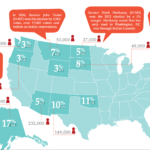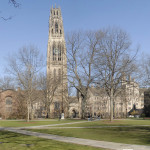A week ago, the Native American community at Yale found its humanity challenged, again.
The Party of the Right encouraged its members, guests, and “what remains of Civilization” to attend its debate on the topic “Resolved: Reform the Savages”. The whip sheet for the debate features quotes championing the notion of “the White Man’s burden” that referred to Native Americans as “half-Devil and half-Child”, and it further calls for members of the organization to “colonize the Body of Savages known as the Yale Political Union”.
The reversion to colonial vernacular and the group’s apparent readiness to do so, is disparaging towards Natives everywhere and targets the Yale Native Community. This community has been my lifeblood throughout my time here. According to the apology letter of the Chairman of the organization, the incorporation of these phrases was meant to communicate the detrimental nature of colonialism, despite the fact that the tone of the text effectively achieves the opposite. Satirical use of such a weighted term effectively trivializes the devastation and suffering that resulted from it, illustrating a complete lack of understanding of what colonialism truly means for us and our tribal communities.
Our ancestors were coerced into signing treaties that revoked their water rights, hunting and fishing rights, and the right to inhabit their traditional lands. They were massacred in acts of genocide deliberately orchestrated by the government and carried out by the military. They were forcibly moved onto reservations and left to die without the promised economic support. Their children were removed from their homes and placed in boarding schools where they were physically and sexually abused for speaking their languages, practicing their religions, or wearing traditional clothing. It was justified by the misguided notion of “Kill the Indian, save the Man”, or, as the whip sheet articulates it, to kill the “half-Devil” side of us. We were abused, pushed to the brink of extinction, and some of our tribes ceased to exist.
All of this was done in fulfillment of “the White Man’s burden”, that ethnocentric notion that non-European cultures were, as Native American law professor and author Walter Echo-Hawk, a member of the Pawnee Nation, puts it, “childlike, barbaric, or otherwise inferior and in need of guidance for their own good… colonization became a noble undertaking done charitable for the benefits of people of color.” “Savage” was a derogatory term used to reinforce this paradigm, classifying Native peoples an inferior “other” in need of paternalistic oversight.
We react so adversely to such use of colonial vernacular because it resonates so deeply and painfully within us. My grandfather grew up eating mustard between two pieces of bread once or twice on a daily basis because our fishing rights had been revoked. My great aunt Helena was forcibly placed in one of these genocidal boarding schools when she turned ten years old. She was brutally beaten because she refused to stop saying her prayers in Ojibwe. By the age of twelve, she was physically and mentally disabled and confined to a wheelchair for the rest of her life. This is not to assert a personal anecdote as evidence, but merely to emphasize that these are the types of deeply emotional sentiments that you bring to the forefront of our minds when you choose to incite controversy in this manner.
We vehemently push back against such language, regardless of whether or not it is used satirically, because it is symptomatic of an underlying collective ignorance that not only exists in the Yale Community, but mainstream society as well. The same people that would use these terms are often unaware of the devastating lasting effects of colonialism on Native Americans today. Reservations comprise an overwhelming majority of the poorest and lowest-income places in the United States. Those of us that live on reservations often suffer under disastrous environmental conditions. Our youth commit suicide at double the rate of the national average. We are incarcerated at a rate of 38% higher than that of the national average. We fall victim to violent crime at more than double the rate of all other U.S. citizens and 88% of violent crime against women is carried out by non-Native perpetrators. To add further insult to injury, the government continues violating its own laws and regulations by allowing corporations to build pipelines through our lands and water supplies, both violating our sovereignty and placing us at further environmental risk.
Despite being pushed to the brink of extinction by white America, we continue to be as open, accepting, and welcoming as we always have been. We welcome outsiders to our powwows, we adopt them into our communities, and we allow them to live on our reservation lands. We’ve been forced to justify our existence for centuries, and we have done so time and time again. Perseverance in the face of overwhelming oppression epitomizes our collective narrative. We’ve never given up before, and we most definitely won’t start now.
Stop debating our humanity.
Andy DeGuglielmo SM’18 is a member of the Sault Ste, Marie Tribe of Chippewa Indians / He can be reached at andrew.deguglielmo@yale.edu
Recommended reading:
Custer Died for your Sins: An Indian Manifesto, Vine Deloria Jr.
In the Courts of the Conqueror: The 10 Worst Indian Law Cases Ever Decided, Walter Echo-Hawk
Colonial Genocide in Indigenous North America, Andrew Woolford



